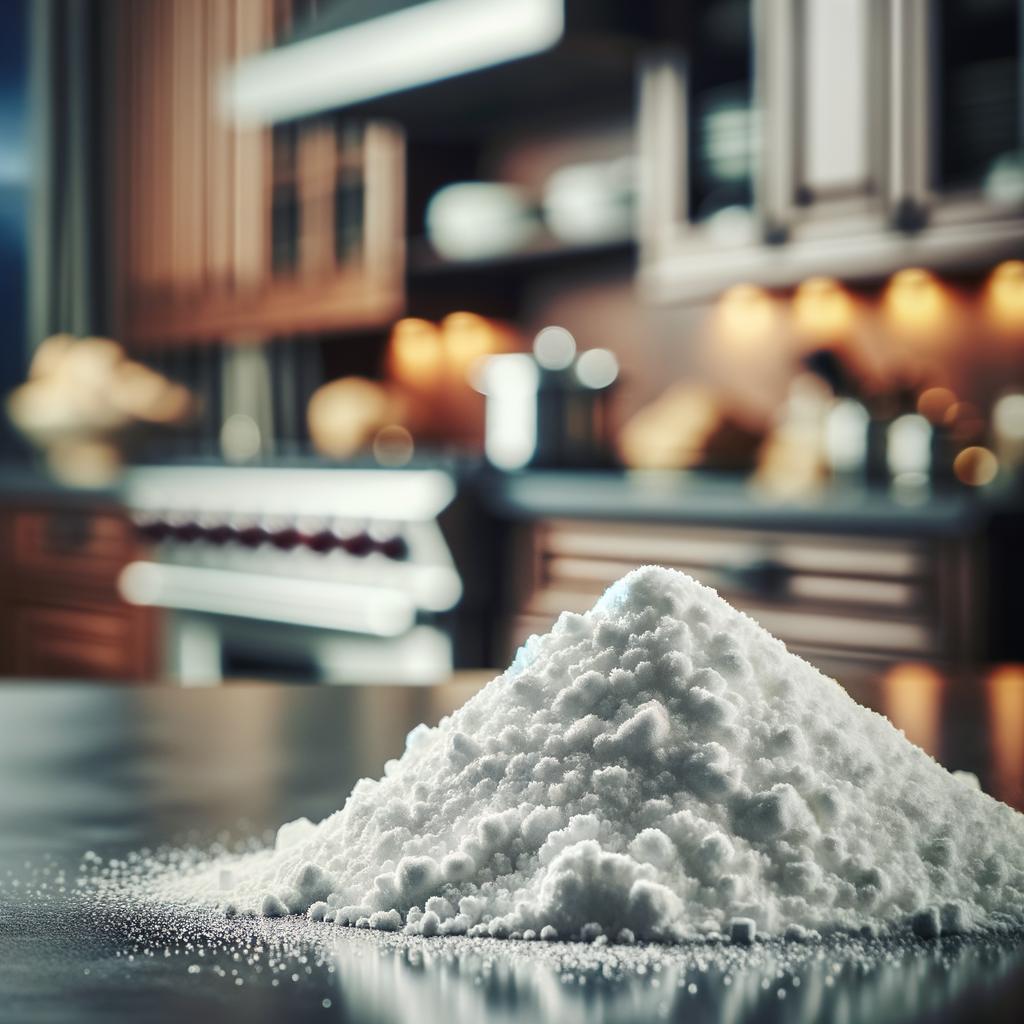Baking Soda

Description Baking soda, also known as sodium bicarbonate, is a household staple with a multitude of uses. It is a white crystalline powder that is slightly salty to the taste and has a slightly alkaline flavor. Its texture is fine and powdery, similar to that of confectioner's sugar, but with a noticeable grittiness. One of the unique characteristics of baking soda is its ability to react with acids to produce carbon dioxide gas, a trait that sets it apart from other similar ingredients and makes it a key player in the culinary world.
Primary Uses In the culinary world, baking soda is most commonly used as a leavening agent in baking. It reacts with acidic components in recipes, such as buttermilk, yogurt, or vinegar, to create carbon dioxide gas. This gas gets trapped in the batter or dough, causing it to rise and give baked goods their characteristic fluffy texture. Baking soda is a key component in a wide range of cuisines, from American pancakes and cookies to Irish soda bread and Asian mooncakes. Beyond its culinary uses, baking soda is also used for cleaning, deodorizing, and even medicinal purposes, such as relieving heartburn and indigestion.
History The history of baking soda is a fascinating tale that dates back to ancient civilizations. The Egyptians used a similar compound, natron, for mummification and as a cleaning agent. However, it wasn't until 1846 when two New York bakers, John Dwight and Austin Church, established the first factory to develop baking soda from sodium carbonate and carbon dioxide. This marked the birth of the baking soda we know today. Over time, its use and popularity have evolved, with people discovering new and innovative ways to utilize this versatile ingredient. One interesting folklore is that baking soda can predict the gender of an unborn child - a fun myth with no scientific backing, but a charming story nonetheless.
Nutritional Information As a nutritionist, it's important to note that while baking soda is not consumed for its nutritional value, it does contain a small amount of sodium. However, its true value lies not in its nutritional profile, but in its unique chemical properties. In terms of health benefits, baking soda can act as an antacid, helping to neutralize stomach acid and relieve indigestion. However, it should be consumed in moderation, as excessive intake can lead to high sodium levels in the body. Compared to similar ingredients like baking powder, baking soda is more potent and requires an acidic ingredient to activate its leavening properties.
Baking soda may seem like a humble ingredient, but its rich history, versatile uses, and unique properties make it a fascinating subject in the world of food history.

